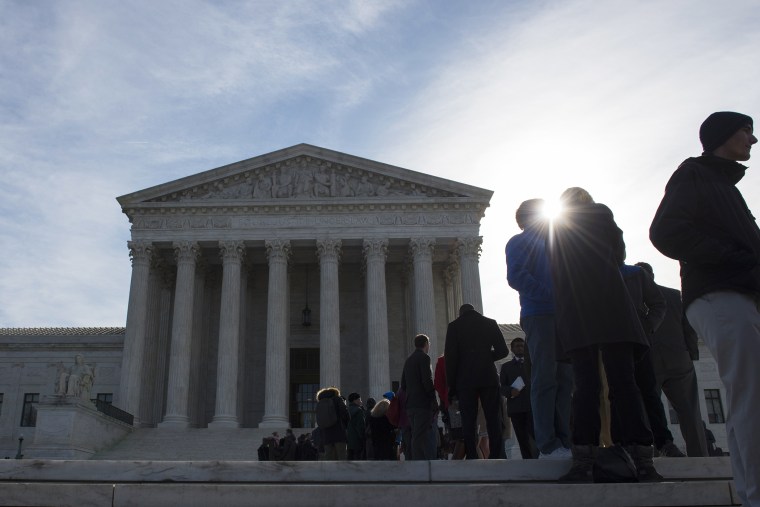When the Supreme Court issued its Hobby Lobby ruling last year, it seemed to have resolved the legal controversy surrounding the Affordable Care Act, employers, and access to contraception. But as it turns out, that's not quite the case. MSNBC's Irin Carmon reported late Friday on the justices heading into Round II.
The Supreme Court on Friday said it will wade back into a years-long conflict between conservative religious groups and the Obama administration's goal of expanding access to contraception. The court accepted seven different appeals from religious nonprofits that challenge a provision of the Affordable Care Act. Here's the key question, a sort of sequel to the 2014 case Burwell v. Hobby Lobby: Is the government's "accommodation" of religious objectors to contraception itself a violation of religious freedom under the law?
At a certain level, the question itself may seem bizarre. We start with a group of religiously affiliated employers who want an exemption from the ACA's policy related to birth control. The Obama administration crafted a policy intended to accommodate their concerns, effectively telling them, "No problem. Just fill out a form letting insurers know about the moral objection." At that point, the contraception is covered by a third party at no cost to the employer.
For the religiously affiliated employers, that's not quite good enough -- they've argued that the act of filling out the document stating a moral objection is itself morally objectionable. The fix to the Hobby Lobby problem has apparently led to a new problem, since those who benefit from accommodation have decided it's not good enough.
I saw some reports Friday suggesting the dispute is about a religious exemption, but that's an incomplete description. It's better to say this latest legal fight is less about religious employers wanting an exemption, and more about them objecting to having to ask for an exemption.
If it sounds like a massive legal dispute that boils down to some folks who are offended by paperwork, that's because, at its core, that's largely what this case is about.
One of the attorneys challenging the ACA policy argued the religiously affiliated employers see the forms as a "permission slip for abortion drugs and contraceptives."
As a substantive matter, the law does not cover abortions, but for some on the right, the line between common forms of birth control and abortions doesn't really exist.
What's more, when this argument has been tested in the judiciary, six federal appellate courts have already rejected the anti-paperwork pitch out of hand, but it did succeed in one court -- the Eighth Circuit -- which led to the high court's intervention.
As Irin Carmon's report added, the Supreme Court isn't picking among the many related cases, instead choosing to consolidate them.
Oral arguments have not yet been scheduled, but a decision is expected in June.
